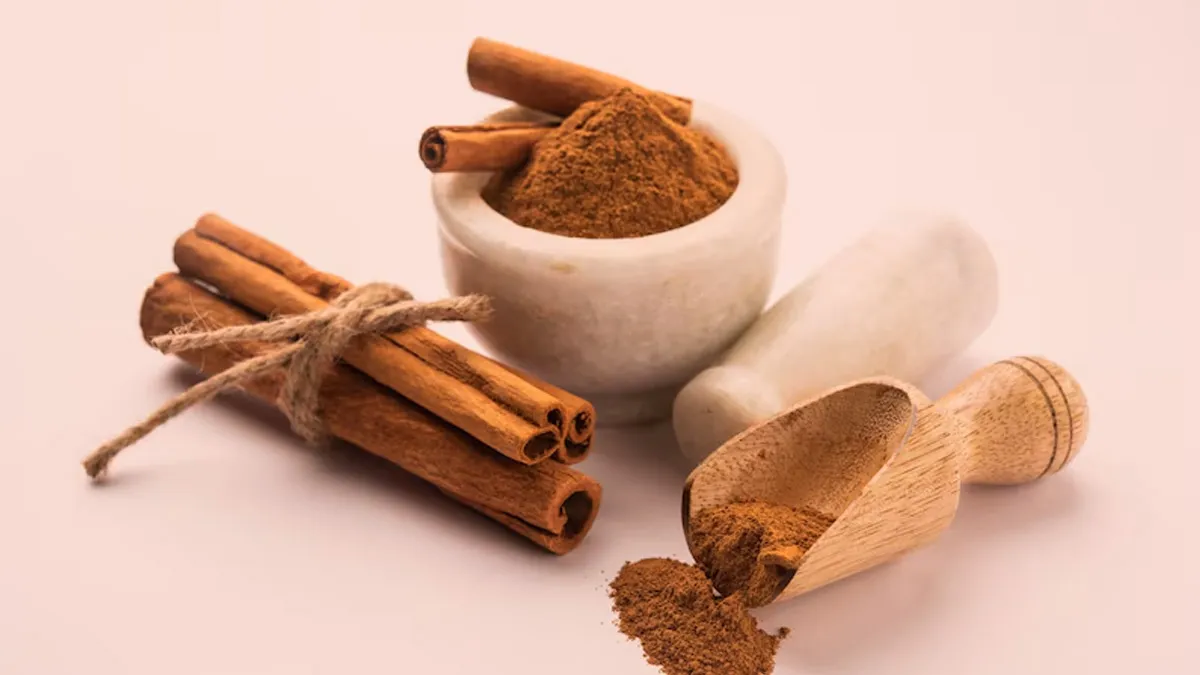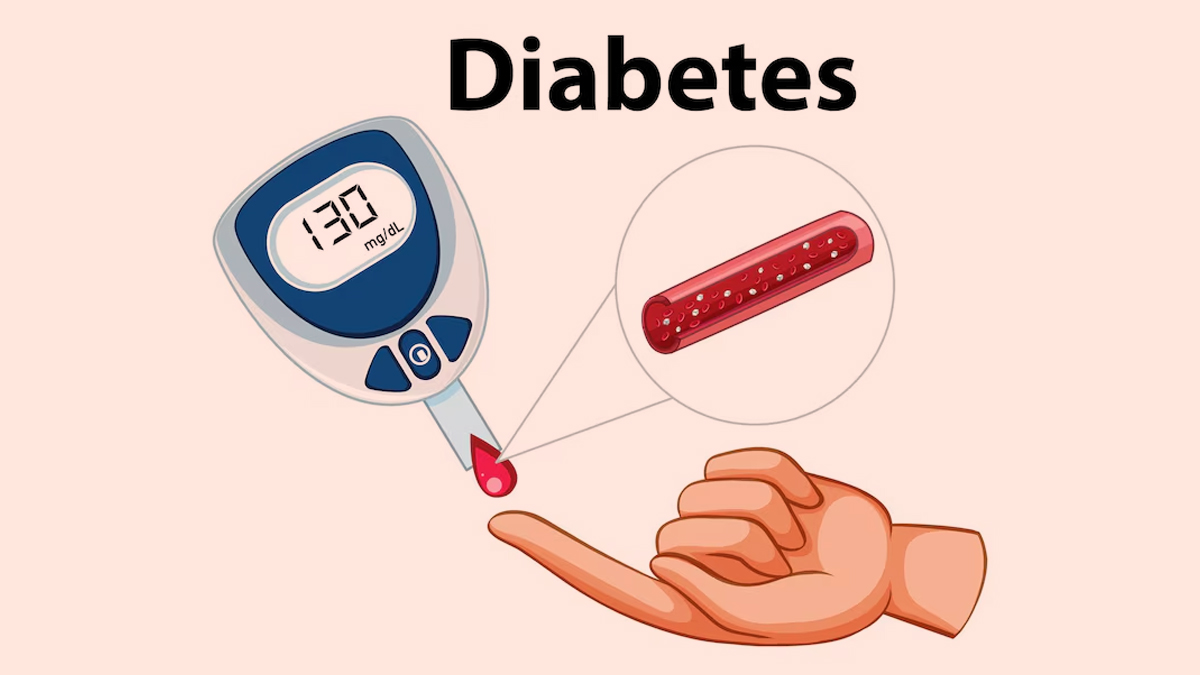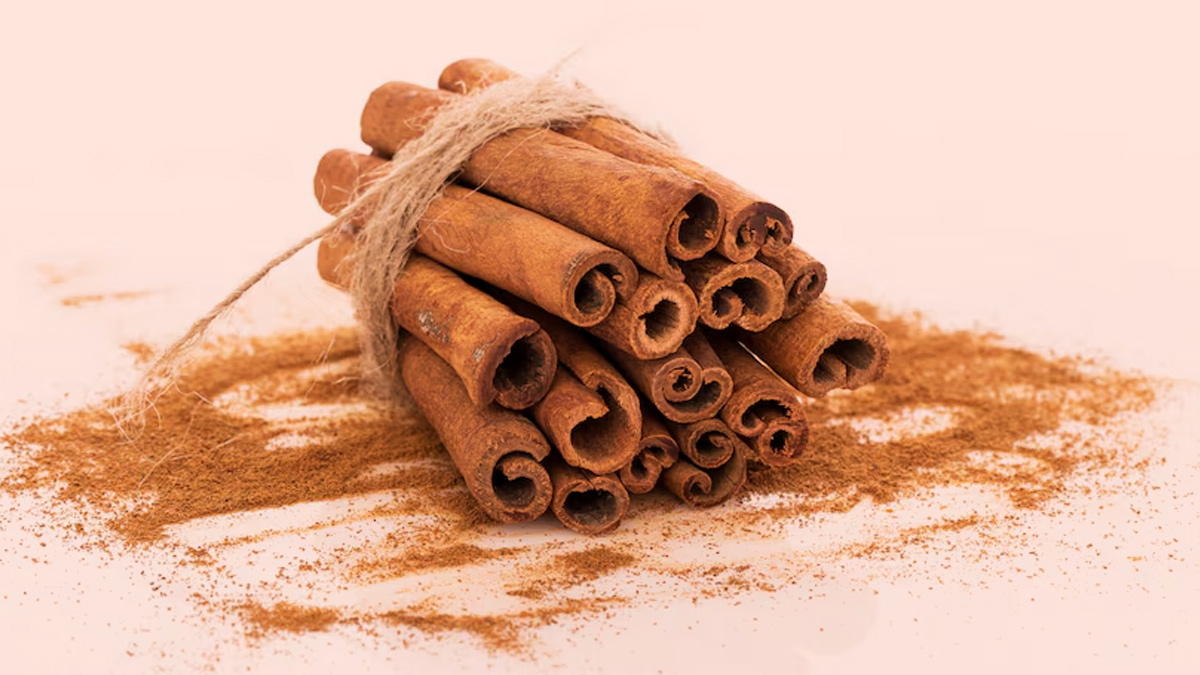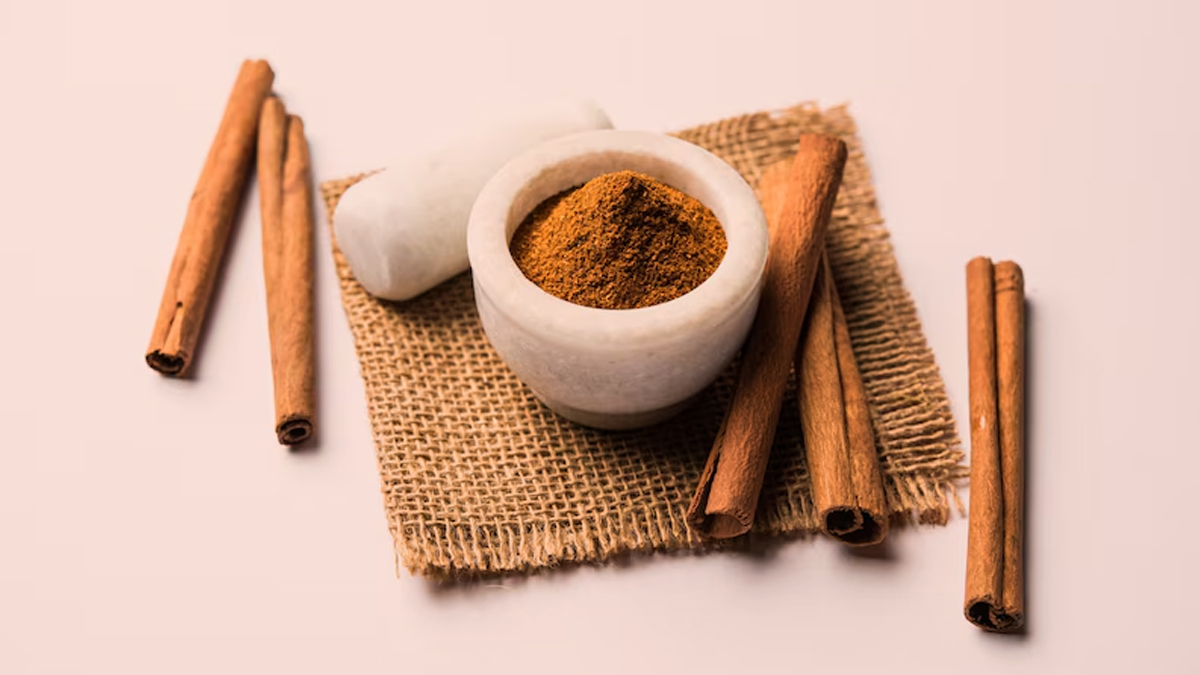
Cinnamon, a popular spice known for its unique flavour and aroma, is used in various cuisines, desserts, beverages, curries, rice, and so on. Not only known for its culinary uses, cinnamon is long used for its medicinal properties for treating common ailments like cold, cough and flu. It has now gained popularity for its benefits in managing diabetes.
Table of Content:-
This flavourful and aromatic spice is packed with compounds that may help in regulating blood sugar levels. But how effective is cinnamon in lowering blood sugar, and what is the best way to consume it? Let’s find out.
Link Between Cinnamon and Blood Sugar Control

According to the Journal of Diabetes Science and Technology, cinnamon contains bioactive compounds, such as cinnamaldehyde and polyphenols, which are believed to have insulin-mimicking properties. These compounds may help improve insulin sensitivity, enabling cells to utilise glucose more effectively and thus lowering blood sugar levels. Some studies suggest that cinnamon can reduce fasting blood sugar levels and may even help lower haemoglobin A1c (HbA1c), a key marker of long-term blood sugar control.
Moreover, cinnamon is rich in antioxidants and possesses anti-inflammatory properties, which may further benefit individuals with diabetes by reducing oxidative stress and inflammation – both of which are linked to insulin resistance.
However, while research shows promising results, it is important to note that cinnamon should not replace conventional diabetes treatments but rather complement them under medical supervision.
Types of Cinnamon: Ceylon vs Cassia

When considering cinnamon for diabetes management, it is crucial to understand the differences between the two main types:
Ceylon Cinnamon (True Cinnamon): Often referred to as "true cinnamon," Ceylon cinnamon (as per studies) is considered to be of higher quality with lower levels of coumarin, a natural compound that can be harmful in large amounts. It is the preferred choice for long-term consumption.
Cassia Cinnamon: This is the more commonly available and affordable variety, but it contains higher levels of coumarin, which may pose risks to liver health if consumed in excess.
For individuals looking to use cinnamon as a health supplement, Ceylon cinnamon is generally recommended due to its lower coumarin content.
Also read: Can Cinnamon Reduce Cardiovascular Risk For Those With PCOS? Here’s What You Should Know
How to Consume Cinnamon for Blood Sugar Control
If you are considering incorporating cinnamon into your diet to help manage blood sugar levels, here are some effective and safe ways to consume it:

1. Cinnamon Tea
One of the easiest ways to include cinnamon in your routine is by preparing cinnamon tea. Simply add a cinnamon stick or half a teaspoon of ground cinnamon to hot water, let it steep for 10-15 minutes, and enjoy. Drinking cinnamon tea before meals may help regulate post-meal blood sugar spikes.
2. Adding to Breakfast
Sprinkling a small amount of cinnamon on your morning porridge, yoghurt, or smoothies can be an effortless way to reap its benefits. Combining it with fibre-rich foods like oats may further aid blood sugar control.
3. Cinnamon Water
Soaking a cinnamon stick in water overnight and drinking it first thing in the morning is another popular method. This practice is believed to kickstart metabolism and improve insulin sensitivity.
4. Incorporating into Cooking
Cinnamon can be used as a spice in curries, stews, and soups, adding a subtle sweetness without the need for sugar. This can be particularly useful for individuals trying to cut down on added sugars in their diet.
5. Cinnamon Supplements
For those who find it challenging to consume cinnamon in their diet, supplements in the form of capsules or powders are available. However, it is crucial to consult a healthcare provider before starting any supplements to ensure they are safe and appropriate for your condition.
Also read: Health Benefits Of Drinking Cinnamon Water Empty Stomach
Precautions and Considerations

While cinnamon offers several potential benefits for blood sugar management, it is important to use it in moderation. According to a report published in the Frontiers of Pharmacology, excessive consumption, especially of Cassia cinnamon, may lead to side effects such as liver damage due to its high coumarin content. Additionally, individuals taking medications for diabetes should be cautious, as cinnamon may enhance their effects and potentially lead to hypoglycaemia (low blood sugar).
Pregnant women, individuals with liver conditions, and those on blood-thinning medications should also consult their healthcare provider before incorporating cinnamon into their daily routine.
Conclusion
Cinnamon can be a valuable addition to a diabetes management plan when used correctly and in moderation. Whether enjoyed as a tea, added to meals, or taken as a supplement, this humble spice may offer potential benefits in supporting blood sugar control. However, it should always be used as part of a balanced diet and healthy lifestyle, alongside regular monitoring and professional medical advice. If you are considering using cinnamon for diabetes management, speak with your healthcare provider to determine the best approach for your individual needs.
Also watch this video
How we keep this article up to date:
We work with experts and keep a close eye on the latest in health and wellness. Whenever there is a new research or helpful information, we update our articles with accurate and useful advice.
Current Version